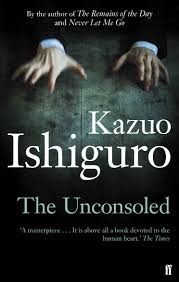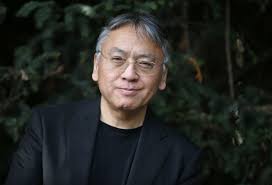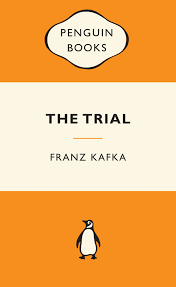
© Faber & Faber
For me, one thing that’s suffered due to the Covid-19 pandemic has been my reading. Before the appearance of the virus, on average, I was able to get through one book a week. However, since the pandemic forced some lifestyle changes – starting with two months of strict lockdown, and then a period with more freedom but limitations on my social life and ability to travel, and also a new working life where I have to do everything on a laptop at home with the result that I sometimes don’t go outside for three days at a time – my reading ability has diminished and it commonly takes me twice or three times as long to read a book now. I suppose it’s something to do with my brain receiving less stimulation than it did in the old days. In the current situation, my brain has grown lethargic, its processing muscles have atrophied, and reading has become a struggle for it.
That said, even back before anyone had heard of Covid-19, I think I would have found the book I’ve just finished reading, Kazuo Ishiguro’s 1995 novel The Unconsoled, hard going.
I’d previously read only three of Ishiguro’s novels – 1986’s An Artist of the Floating World, 1989’s The Remains of the Day and 2005’s Never Let Me Go – but I’d enjoyed them and was looking forward to reading The Unconsoled when someone recently bought it for me as a present. It tells the story of a world-famous pianist called Ryder who arrives in an unnamed city in the Germanic part of Europe a few days before he’s scheduled to top the bill of a concert there. It gradually transpires that this concert has much invested in it. It’s supposed to mark the rehabilitation of a local composer called Brodsky who, after many years as a chronic alcoholic, appears to be on the mend. Brodsky occupies a talismanic position not just for the city’s artistic community but for the city as the whole, and the citizens whom Ryder encounters assume that Brodsky’s success or failure at the concert will lead to the city’s future well-being or decline.
This basic scenario is curious, then, but more curious still is what happens to Ryder after he books into his hotel in the city. For he finds himself deep in the heart of what can only be described as Kafka Country. Yes, Ishiguro drops his main character into a labyrinth of improbable confusion and frustration, like those that feature in the pages of the great Czech author’s The Trial (1925) and The Castle (1926).
Firstly, people he’s only just been introduced to pour out their problems to him and beg him for help – starting with Gustav, the hotel’s elderly porter, who believes that Ryder can somehow engineer a reconciliation between him, his estranged daughter Sophie and his grandson Boris. Also requiring Ryder’s assistance is the hotel manager Hoffman (who thinks Ryder can help thaw the icy relationship between him and his wife) and Hoffman’s son Stephan (who wants to enlist Ryder’s aid in winning his parents’ respect). Plus Ryder is soon being pestered by various city dignitaries in a panic about what Brodsky might do at the forthcoming concert, and by local journalists who for some mysterious reason want him to do a photo-shoot next to a controversial monument on the city’s outskirts, and by an embittered musician called Christof, whose fortunes have begun to wane as those of the now-teetotal Brodsky have begun to wax again.
Ryder agrees to help these many people out and soon ends up with a hectic pre-concert schedule. But – and here’s the Kafka-esque part – he rarely manages to get from one appointment to another without being waylaid by somebody else. The plot is a series of resolutions by Ryder to assist Person A by going to Place B, only to encounter Person C and get diverted to Place D.

From asianews.it
The laws of physics also conspire against Ryder. Distances unaccountably expand so that addresses and buildings that seem only minutes away become harder and harder to get to. But occasionally they contract too, so that function halls and restaurants in remote parts of the city turn out at the last moment to handily adjoin the very hotel Ryder is staying in. Further weirdness occurs when Ryder acquires a temporary omniscience and finds himself eavesdropping on conversations that are happening rooms away from him or witnessing events that happened in his new acquaintances’ distant pasts.
To make things more confusing, it’s not just the physical universe that’s collapsing around Ryder. His internal universe seems to be doing the same. Improbably, as he beetles about the city, he keeps encountering people he once knew during his childhood and youth in England. Even though he’s only just met Sophie and Boris, he somehow simultaneously seems to have known them for years, to the point where Sophie is his long-term partner and Boris his son. And his elderly and ailing parents have supposed arrived somewhere in the city, with the intention of watching him perform for the first time. But although he keeps hearing reports of his parents, he never quite manages to catch up with them.
So what is going on? I wondered if it was all happening in Ryder’s dazed mind and Ishiguro was trying to create a nightmarish satire on modern celebrity. Ryder, in other words, has gone mad whilst constantly having to fight his way through throngs of obsequious yes-men and hangers-on, all determined to exploit his fame in different ways. However, I don’t think it’s a spoiler with this type of novel to warn that you may not have got the answers by the end of it.
Incidentally, it’s interesting that The Unconsoled appeared in 1995, just before the Internet took off and just before the carrying of mobile phones became de rigueur for everyone. I can only imagine what a tangled plot The Unconsoled would have had if it’d been written a few years later, with the beleaguered Ryder also being assailed by phone calls, texts, emails and WhatsApp messages as well.
I’m a fan of the works of Franz Kafka and there are plenty of other books I admire that could be described as Kafka-esque. Alasdair Gray’s 1980 classic Lanark is one. But what makes The Unconsoled such a slog is that Ishiguro appears to have no ‘edit’ function when it comes to the dialogue. Or more accurately, the monologues, because the book has an endless succession of them. People approach Ryder, ostensibly to flatter and fawn over him, but really to unburden their problems on him, which they do in screeds of repetitive and obsessive blather. It soon got to the point where, whenever a new character appeared, I’d shudder and check out the pages ahead to find out how long the inevitable, pleading soliloquy would go on for. New York might be the City That Never Sleeps, but the anonymous city here is the City That Never Shuts Up.
Of course, this incessant, unstoppable prattling adds to the Kafka-esque quality of the situation enveloping Ryder. But it isn’t much fun to read, especially when the novel clocks in at 535 pages. That’s an awful lot of prattling to get through.
If Ishiguro had made The Unconsoled half its published length, he’d have created a novel with the same uncomfortable, disorientating qualities, but one that would have been far less of a chore to read.
Incidentally, I’ve just checked out the most recent Penguin editions of Kafka’s The Trial and The Castle and found that they run to 208 and 320 pages respectively. Would they have had the same impact if Kafka had added an extra 200 or 300 pages to them? Or would this have diminished their effectiveness through overkill? I suspect the latter. As it stands, The Unconsoled doesn’t feel so much like a book influenced by The Trial as a book that’s just, well, a trial.

© Penguin Books
